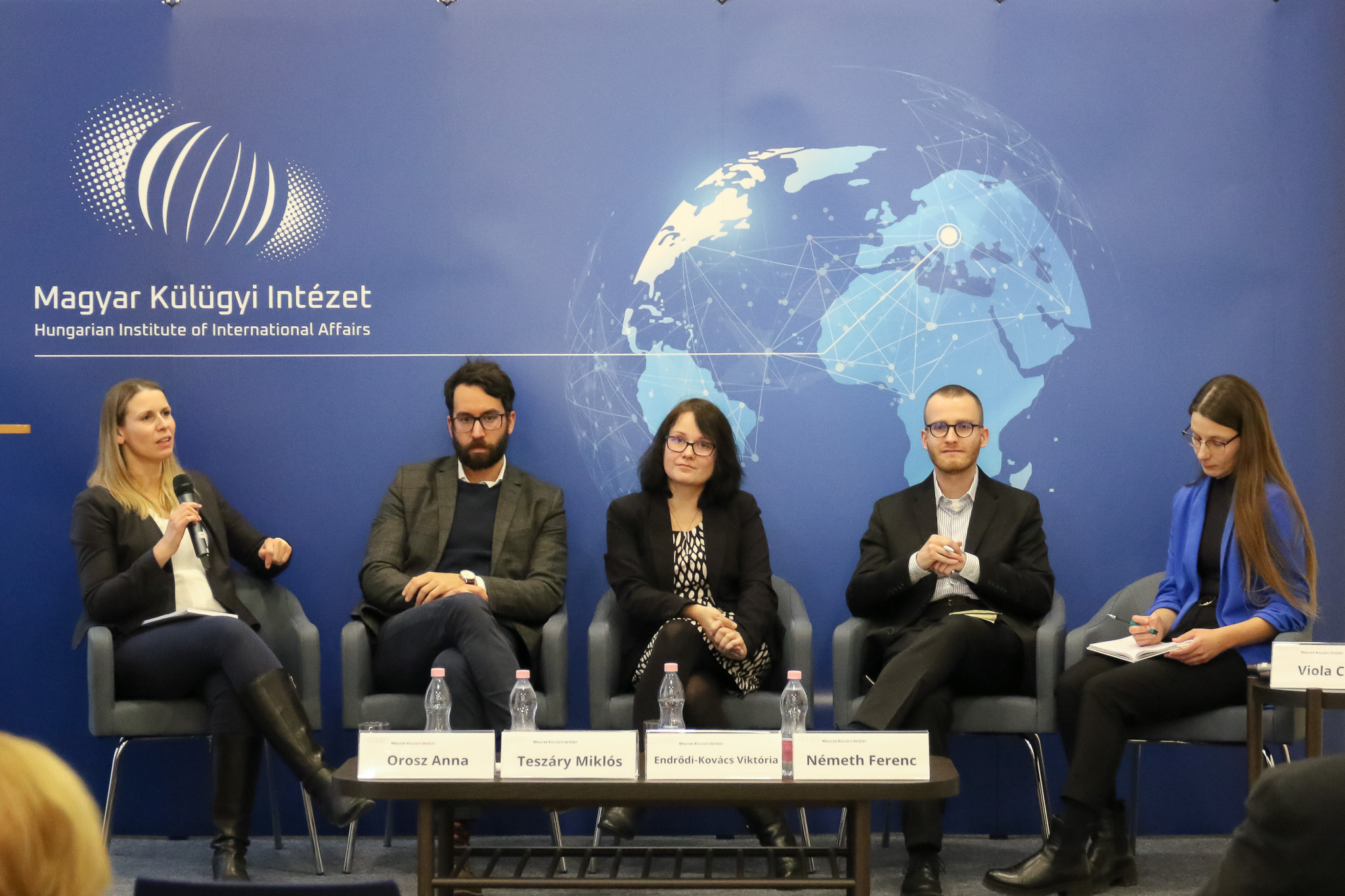The Hungarian Institute of International Affairs (HIIA) held its roundtable discussion entitled “New Year, Old Challenges? The Western Balkans in 2024” on January 23, 2024, with the participation of Viktória Endrődi-Kovács, Assistant Professor at the Corvinus University of Budapest, Miklós Teszáry, Researcher at the Mathias Corvinus Collegium, and Anna Orosz and Ferenc Németh, Researc Fellows of HIIA. The discussion was moderated by Cintia Viola, Research Fellow of HIIA.
The event started with the remarks of Cintia Viola, who described 2023 as an eventful year for the Western Balkans, but noted that there have been no fundamental changes in the region, especially in the context of European Union (EU) enlargement. Concerning the countries’ accession process, Anna Orosz said that three new countries, Ukraine, Moldova and Georgia have been granted EU membership perspectives, but now it is time for the EU to focus its attention on the Western Balkans. She acknowledged that the countries of the region have been rather slow to meet the EU’s accession criteria, although this is also due to the fact that the conditions have been extended or modified several times over the last 20 years. Ms. Orosz also spoke about the New Growth Plan, highlighting the potential difficulties of its practical implementation in the region. According to the Research Fellow, Bosnia and Herzegovina is the biggest source of risk among the Western Balkan countries, with ethnic incidents multiplying in recent years and with the issue of the Republika Srpska still unresolved.
Viktória Endrődi-Kovács pointed out the dilemma of different EU accession strategies. In her view, many problems may arise with the “big bang” enlargement of the EU with the Western Balkans – i.e. the accession of countries all at once – but the challenges are equally present in the case of gradual integration. Furthermore, the uneven preparedness of the countries in the region for accession also poses a challenge for their integration into the EU. With regards to the EU’s new Growth Plan for the Western Balkans, she said that the aim is to bring the Western Balkans’ market closer to the Single Market, for which the resources foreseen in the Growth Plan are necessary – the question is whether they will be sufficient. Ms. Endrődi-Kovács also spoke about the economic relations between Hungary and the Western Balkans, underlining that Serbia is by far the most important (trade) partner for Hungary, especially in the field of energy. At the same time, Hungary is no longer a major investor in the Balkans (Germany, France and Italy are among the top investors), so it would be practical to revive Hungarian investment promotion programmes.
Concerning the relationship between the EU and the Western Balkans, Miklós Teszáry stressed that the EU has given but also taken away in the past 20 years, while adding that 2024 could be an outstanding year for cooperation. The countries of the region have been waiting for EU membership since 2003, which has led to growing dissatisfaction within society and a diminishing desire to join. The Researcher also pointed out that elections in the region are always accompanied by conflict, so it will be worth paying attention to both Bosnia and Herzegovina and Kosovo in 2024.
Ferenc Németh highlighted the progress made in the EU enlargement process but stressed that its scale is still limited. He underlined, however, that there will be a number of elections in 2024, including the EU, the US and the Western Balkans, which could influence the accession process. One of Hungary’s priorities during its EU presidency will be the EU integration of the Western Balkans, but even in this respect, no significant changes should be expected. EU scepticism is growing in the region, partly because of the EU’s frequently changing accession requirements, and partly because of the lack of reforms in the countries of the region. Mr. Németh stressed that a military conflict in the Western Balkans is unlikely, as it would be neither economically nor politically profitable for regional and international actors.

